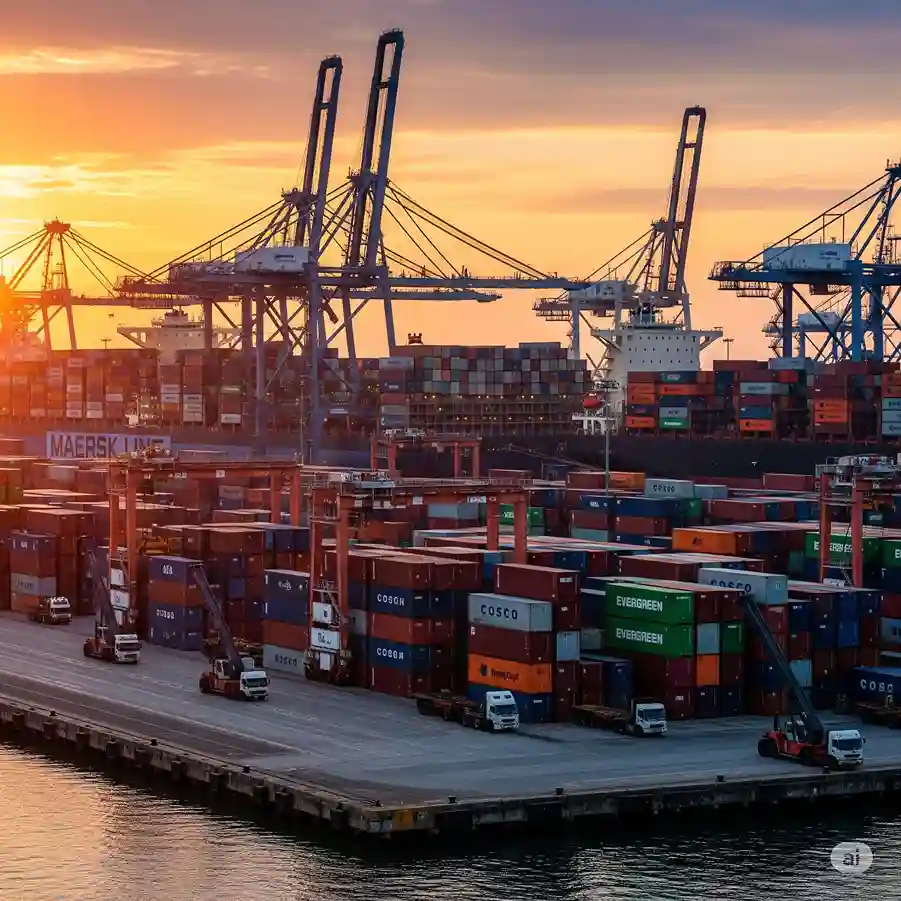In today’s increasingly globalized economy, the world has become one market. Entrepreneurs who want to start their own business the reality of this is that it opens new opportunities to tap into international markets and offer products that are in high demand to local consumers. Beginning an import-based business is a smart option to take advantage of global manufacturing efficiencies, supply distinct products that aren’t available locally, and adapt to the changing preferences of a market that is discerning. This article outlines a range of business concepts that are promising for import that provide insight into possible product categories as well as the key factors to navigate the maze in international commerce.

Identifying Lucrative Import Niches: Filling Market Gaps
The secret to success for an import business is to find products that are popular locally and a reliable supply chain. A thorough market analysis is essential in identifying the opportunities.
Consumer Goods
- Electronics and Gadgets: There is a demand for modern gadgets, electronics, smartphones and cutting-edge gadgets frequently exceeds the capabilities of local manufacturers. This is why importing these products from countries renowned for their technological advancements could be an extremely profitable business.
- Trendy Apparel as well as Accessories: The entrepreneurs are able to import fashionable shoes, clothing bags, jewelry, and handbags from the global fashion hubs to appeal to a fashion-conscious populace. Concentrating on distinctive designs and premium materials help to create a niche market.
- Interior and Home Decor: Importing distinctive home decor items, kitchenware furniture and fabrics is appealing to those who are looking for unique items to improve the living space of their homes. This enables you to provide items that are distinct from domestic brands that are mass-produced.
- cosmetics, personal care products: It is possible to import internationally-branded skincare, cosmetics and personal care items in order to serve a increasing number of people who are who are interested in trends in global beauty and the specific formulations of products.
- Specialty Foods & Beverages: Importing gourmet foods exotic spices, special teas and coffees, as well as international beverages can satisfy people with discerning palates and who are looking for distinctive food experiences.
Read Our Book: Click Here
Industrial and Commercial Goods
- Machines and equipment: Industries in the local local area could require specific tools, machinery and equipment not available in the United States. Importing these items could help the development of local manufacturing as well as other industries.
- Raw Components and Materials: Importing raw materials, components and components that are used for local manufacturing processes could possibly lower costs and enhance local quality made products. So, an in-depth review of the needs for local industry is an important initial step.
- Agriculture Products and Supplies: Based on the local agriculture sector it is possible to purchase specialized fertilizers and seeds, agricultural equipment, or other agricultural products scarce or are of higher quality from overseas sources.
- Medical Equipment and Supplies: You can support the local healthcare industry by importing the latest medical equipment as well as diagnostic tools and medical supplies for specialized use.
Niche and Emerging Markets
- Eco-friendly and sustainable products: With increasing environmental awareness, the import of eco-friendly products and sustainable home items and organic materials could appeal to a rapidly growing and passionate segment of the market.
- Pet Products and Accessories: The pet ownership market continues to grow. Importing exclusive and premium products for pets, including food and other pet-related items is a profitable business idea.
- Educational Toys and Games: Importing innovative and educational toys and games is appealing to parents looking to offer enriching educational experiences for their children.
In identifying niches in imports when identifying niches for imports, you should consider factors such as import duties as well as the cost of transportation the local market, competitive pressure and the regulatory environment in both the importing and exporting countries.
Read Our Project Report: Click Here
Navigating the Import Process: Essential Steps
The process of importing successfully requires an knowledge of the processes and regulations.
- Find An Import and Export Code (IEC): It is a requirement for all those involved in export or import actions in India. This can be obtained through the Directorate General of Foreign Trade (DGFT).
- Find Reliable Suppliers: Locating reliable and trustworthy suppliers from overseas is vital to guaranteeing the quality of goods and a reliable supply chain. You must perform thorough due diligence and look into visiting potential suppliers, if you can. Trade fairs, online platforms as well as sourcing agents could assist during this process.
- negotiate terms and End contracts: Clearly define the terms of your contract with your supplier, including the specifications of the product, the quantity of the product, price as well as payment terms and delivery dates. A well-written contract is vital to avoid disputes in the future.
- Organise the Transportation and Logistics: It is important to choose the method of transportation (sea air, sea, or land) in light of factors such as cost along with speed and nature of the product. Find reputable cargo forwarders as well as clearing agencies who will handle the logistical aspects, customs clearance and the transportation of your items.
- Secure and Essential Insurance Insuring your products while in transit is vital to safeguard against loss or damage.
- Follow the Customs Regulations: You must be aware of and adhere to the customs regulations in India which include documentation requirements as well as the valuation of goods and the payment of import duties and taxes. Utilizing a customs clearing agency could significantly speed up the procedure.
- Arrange for Distribution and Warehousing: After your items arrive, you’ll require storage facilities for warehousing and a distribution system to distribute the goods to your clients.

Building Your Import Business: Key Considerations
Beyond the mechanics of imports certain strategic aspects can affect the outcome of your business.
- Build a strong brand and Marketing Strategy Even if you’re importing brands that are already in use and products, you’ll need an effective marketing strategy to get your message out to the right customers. In the case of private-label imports, creating your brand’s reputation is more crucial.
- Develop efficient distribution channels: You must determine the most effective ways to connect with your clients, whether via direct sales or partnerships with local stores or online platforms or any mixture of the two.
- Control Inventory Effectively Install an efficient inventory control system that tracks levels of stock, anticipate demand and prevent overstocked inventory or stockouts.
- Give excellent customer service: Just like any other company, providing exceptional customer service is vital to creating customer loyalty and a favorable image.
- Stay updated regarding trade Regulations: International trade regulations and import duty rates can be subject to change. It’s important to keep updated on the most recent updates by the DGFT and customs authorities.
- manage currency fluctuations Changes in exchange rates can affect your profits and costs. It is important to think about ways to minimize this risk, for example hedges.
- Develop strong relationships with Stakeholders Build strong relationships with your suppliers logistic partners, customs brokers and customers to ensure smooth operation.
Discover the Right Business for You With Our Startup Selector Tool
Conclusion
Beginning an import-related business is an opportunity for entrepreneurs to tap into the global market and meet local demands. Through carefully identifying lucrative niches for their products, carefully managing the process of import and efficiently managing their business, potential importers can create profitable ventures that can contribute to diversification and economic growth. While international trade may have its challenges, with careful research, careful planning and an unwavering commitment to customer satisfaction and quality entrepreneurs are able to successfully cross the world and make imports on and succeed.
Import Business Ideas: Frequently Asked Questions (FAQ)
1. What’s the initial step in starting an import-related business in India?
The initial crucial step is to get the Import-Export Code (IEC) from the Directorate General of Foreign Trade (DGFT).
2. How can I locate trusted suppliers for my business of import?
It is possible to find suppliers via B2B online platforms as well as international trade fairs, suppliers, and by conducting a thorough online search as well as due diligence.
3. What are the major cost of importing items?
The primary expenses include the cost of the product, transportation costs and insurance, import duties tax as well as customs clearance fees and warehouse and distribution and storage costs.
4. Do I require an agent for customs or a clearing agent in order to import goods?
Although it is not mandatory hiring the services of a customs broker or clearing agency is strongly recommended because they have experience in the field of customs regulations and are able to facilitate the clearing process which can save you time and possibly penalties.
5. How do I find out the duties that apply to imports of my product?
Import duties are based upon the Harmonized System (HS) code of the product as well as the current tariff rates in India. This information is available on the official website that is maintained by the Central Board of Indirect Taxes and Customs (CBIC) or by contacting an agent for customs.






